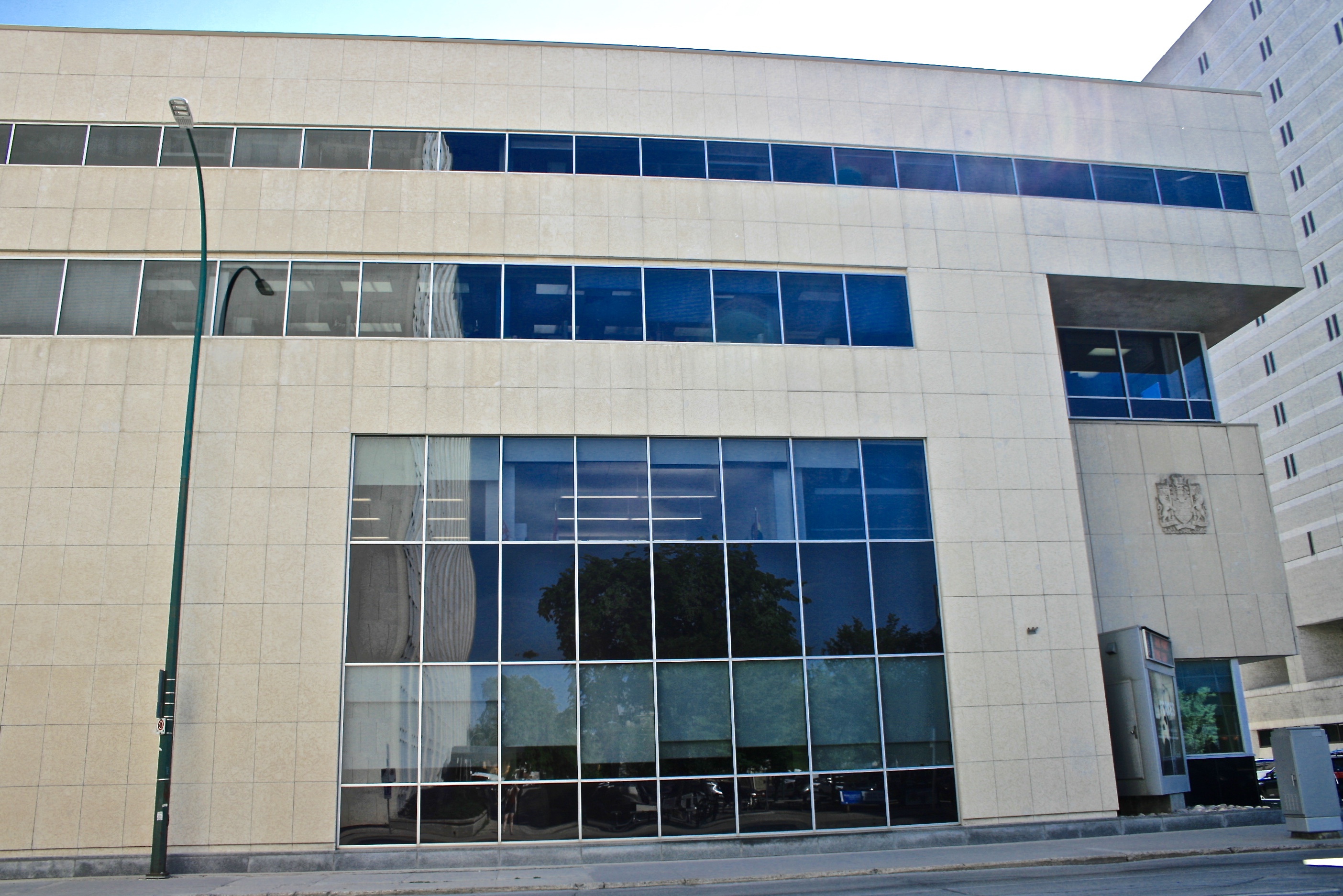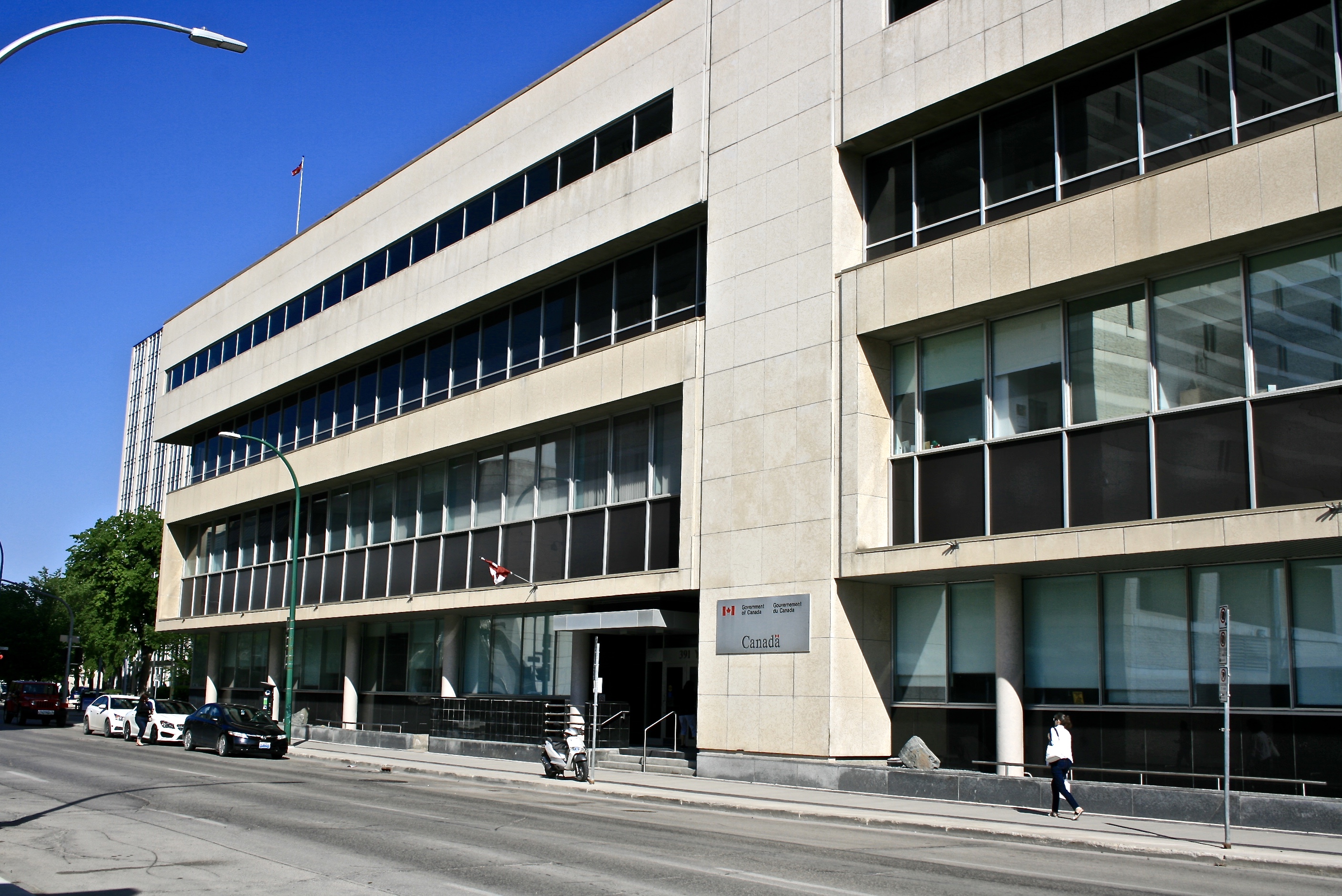Stanley Knowles Federal Building
| Former Names: |
|
|---|---|
| Address: | 391 York Avenue |
| Current Use: | Federal and municipal government offices |
| Original Use: | Government offices |
| Constructed: | 1957-58 |
| Other Work: | 1968, Two storeys added |
| Architects: | |
| Contractors: |
|
More Information
This building was originally constructed for the Department of National Revenue. The structure was designed by local firm Moody & Moore in the style of International Modernism. The original design included two storeys, a basement, and provision for a future third floor. The structure is of reinforced concrete construction, with walls finished in brick, Tyndall stone, granite, and mosaic tiles. By 1968 two storeys were added to the building, bringing it up to its current size.
The building is an example of international style which focuses the design on emphasizing volume of space rather than mass. The lack of ornamentation and flat roof are an indication of modernist design. The only ornamental aspect to the structure can be found on the Kennedy facing facade. There is a crest carved in to the Tyndall stone.
Design Characteristics
| Style: | International |
|---|
- Gross floor area: 158,610 sq. ft. (14,734.9 sq. m) or 163,218 sq. ft. (15,163 sq. m)
- The Stanley Knowles Revenue building is associated with the increase in size and responsibilities of the federal government during the 1950s and 1960s and, more specifically, in regards to new taxation practices that were developing at this time
- The structure is a convenient example of other buildings designed and constructed to house public services in the post-war period of Winnipeg
- This building is an excellent example of the International Style of Modernism, evidenced by its emphasis on volume of the space rather than the mass of its walls, the lack of architectural ornamentation and use of banded windows, which together with its flat roof, gives the building its modern aesthetic
Sources
“Making Rapid Progress,” Western Construction and Building, 10, 9(September 1958), p. 6.
“$1,000,000 Income Tax Building,” Western Construction Building, 9, 9 (September 1957), p. 12.
Locations of Supporting Info
City of Winnipeg Archives
Provincial Archives of Manitoba
University of Manitoba Libraries, Department of Archives and Special Collections, Winnipeg Tribune Subject Clipping Research Files





